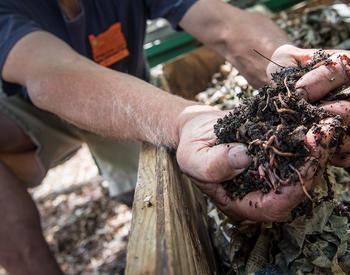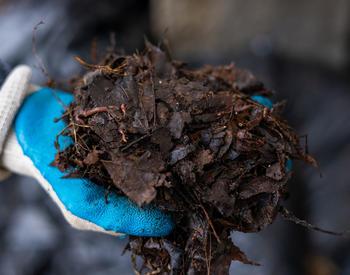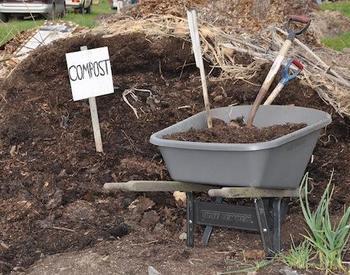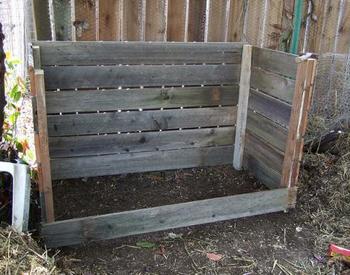CORVALLIS, Ore. – Adding organic matter is the best way to improve nearly all kinds of soils. If you're unsure if your soil needs amendments, take note if it dries and cracks in summer, drains slowly or is difficult to dig whether wet or dry. Do your rhododendrons and other shrubs wilt in hot weather, even with added water?
Adding organic materials improves the ability of sandy soils to hold nutrients and water. For clay soil, organic additions improve drainage and aeration and help the soil dry out and warm up more quickly in the spring.
Good organic amendments for garden soils include wood by-products such as sawdust and bark mulch, rotted manure, grass or wheat straw and compost. Inorganic amendments include pumice, perlite, vermiculite and sand.
Any composted material that has been reduced to humus is a good soil amendment. However, the breakdown of high-carbon organic matter in cattle and horse manure can take years. To speed the process, mix additional nitrogen into your garden – at least six pounds of ammonium nitrate or 10 pounds of ammonium sulfate per inch of organic matter, applied over a 1,000-square-foot area.
Inorganic amendments such as perlite, sand and vermiculite function primarily as wedges that separate soil particles, increasing soil porosity and aeration.
Sand does not hold water and nutrients very well and causes finer silt or clay soils to compact. Mix sand with an organic amendment such as sawdust to improve the sand's amending properties.
Thoroughly rototill any amendment into garden soil – when dry – to prevent layering. Rototilling organic amendments into gardens in the fall gives soil microorganisms an early start on converting organic matter to humus. Another rototilling in spring will thoroughly mix in the amendments.
An easy way to amend garden soils is to plant a green manure cover crop. An excellent winter cover crop for western Oregon is crimson clover. Plant 12 pounds of seed per 1,000 square feet. Plant no later than Oct. 1 and water the bed so the crop is established before cold weather sets in. When rototilled under in late April, crimson clover will produce 3-4 pounds of nitrogen per 1,000 square feet.
More information on improving garden soils is available in "Growing Your Own," a practical guide to gardening for first-time gardeners. Copies of a printed version are at county Extension offices.


















